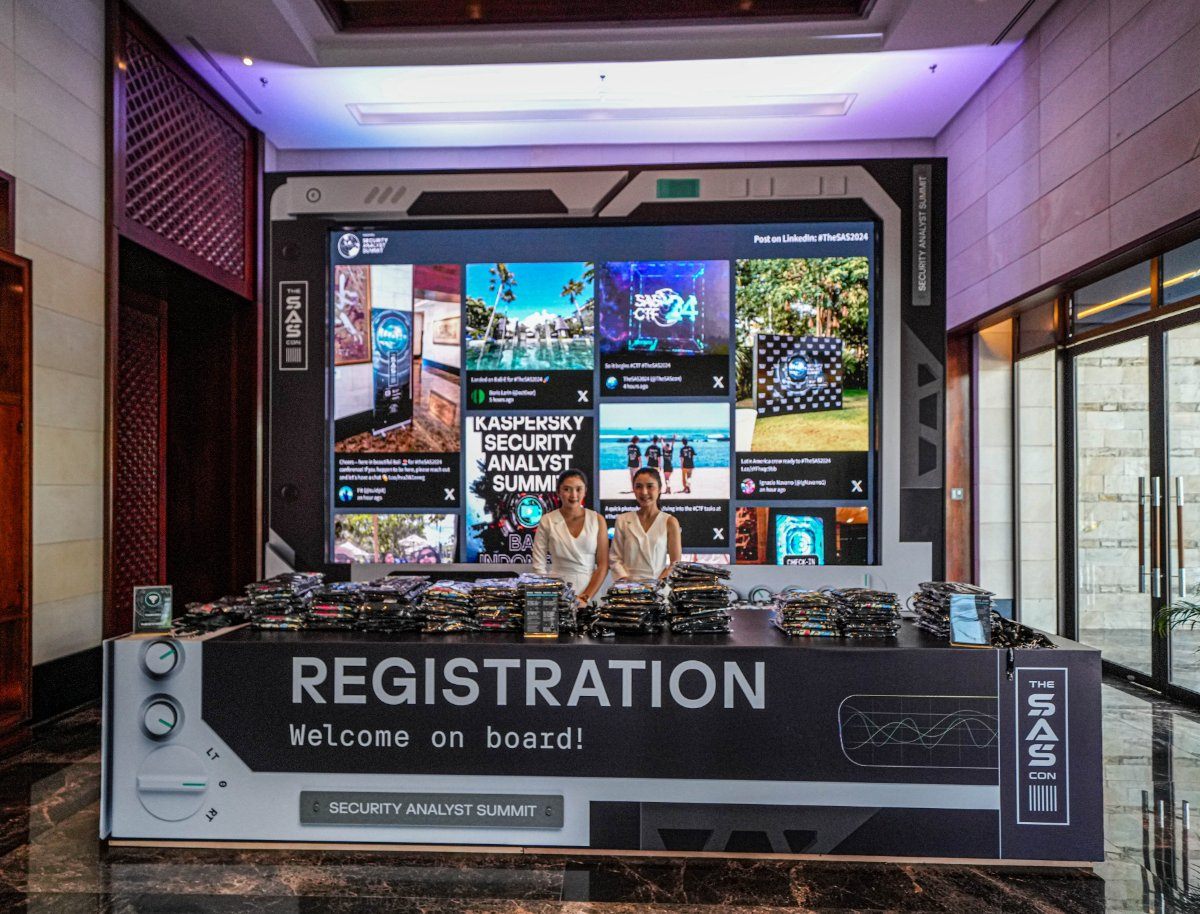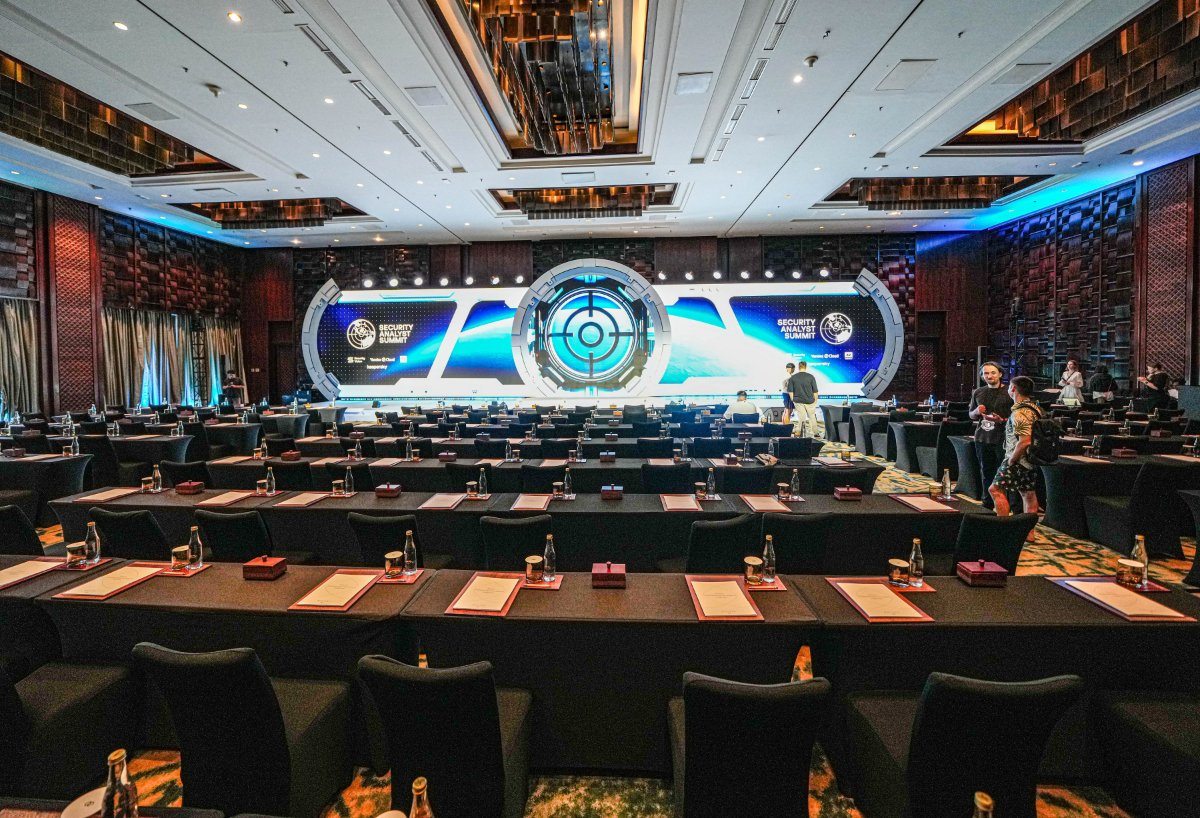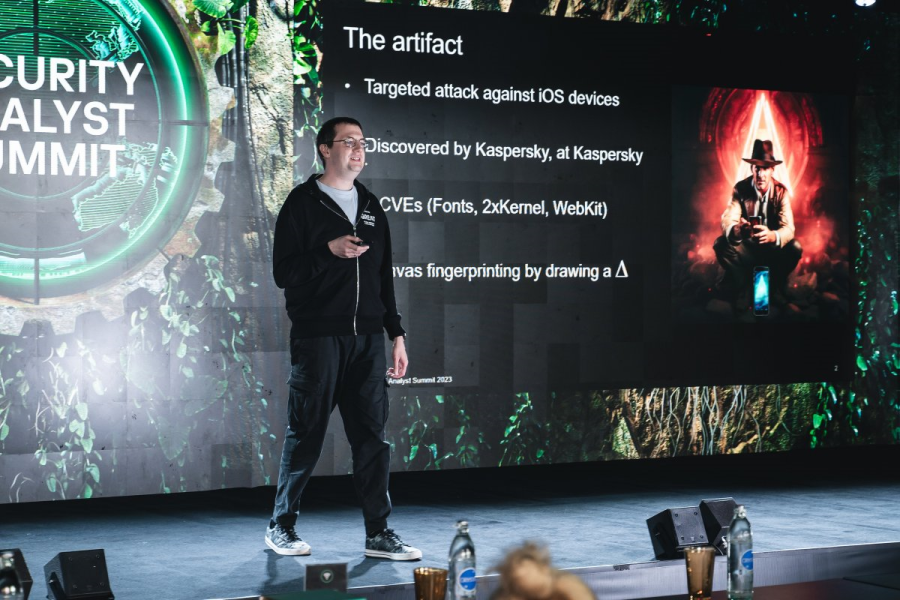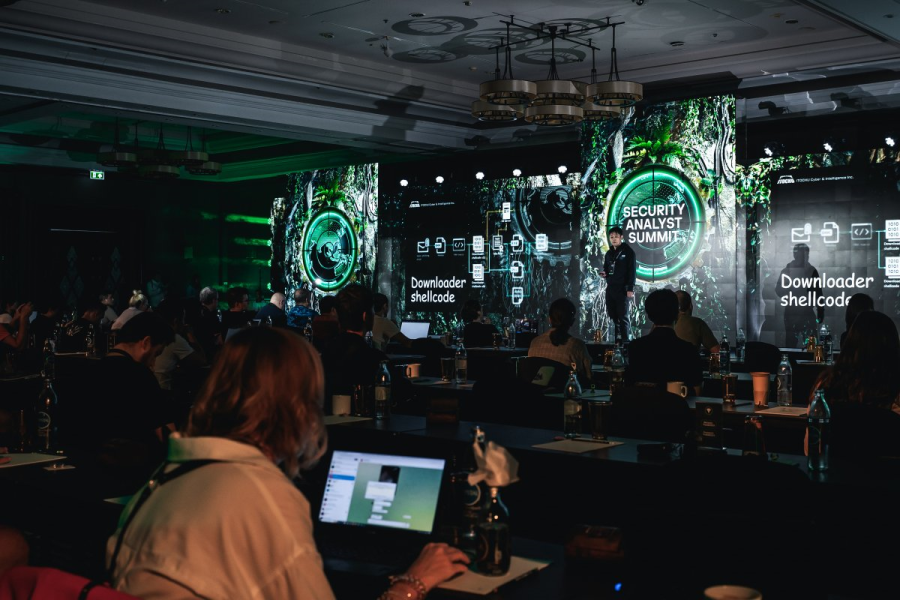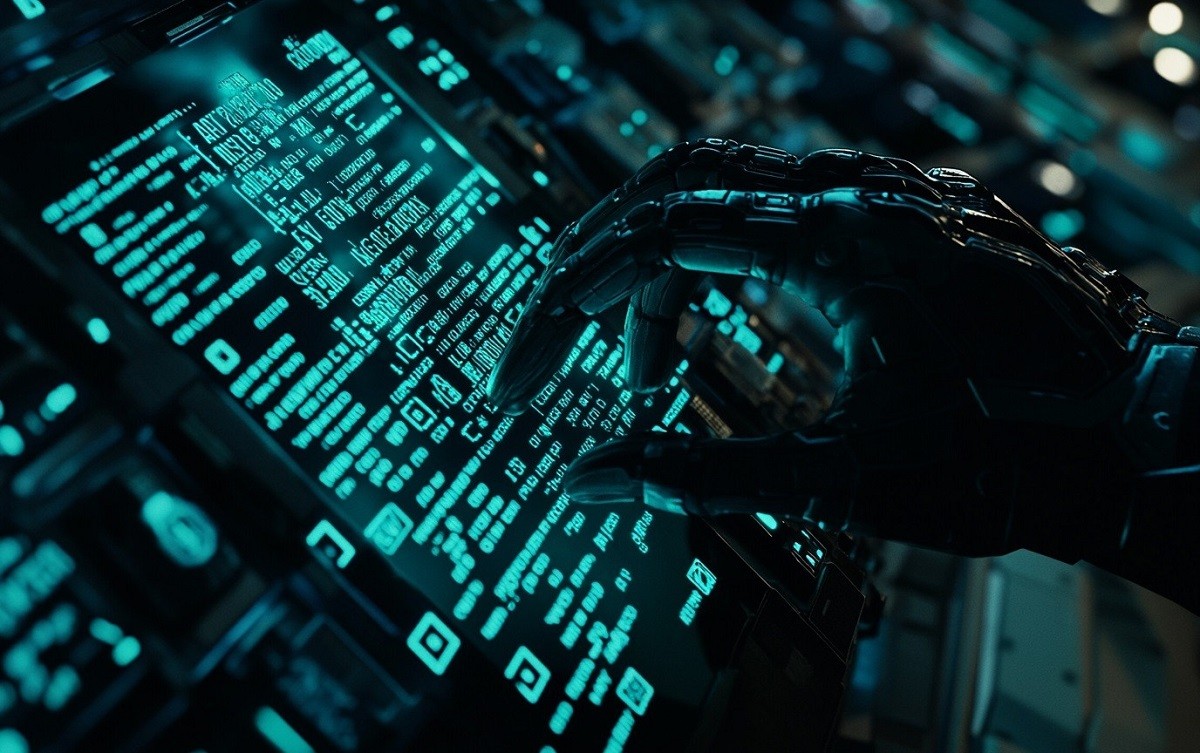October 22, 2024
SAS-2024 – what you waiting for?!
Hi folks – from Indonesia, where we’re holding our yearly international cybersecurity conference SAS – the Security Analyst Summit.
Dozens of cybersecurity events take place around the world every year, but ours has its own special format – its own special work-hard-play-hard ethic, and it’s always by the sea in a tropical clime. It attracts leading analysts and researchers of the most complex cyberattacks, and this year we’re in Bali ->
This is our 16th SAS, and the program for the four-day event is as it always is (not including 2020): world-leading international experts giving presentations on their latest findings, mingling with like-minded boffins, and then letting their hair down in a suitably relaxing setting:
The hall’s still empty. Guests are just arriving, checking in, getting ready ->
Last year’s SAS was here ->
Previous years ->
A conference that turns into a shindig that turns back into a conference. Shaken not and stirred – for maximum effect: this is my fave format. And it’s turned out that SAS’s presentations are of the highest caliber, and that chats on the sidelines (like on the beach) with a glass of something strong in hand are simply fantastically interesting: “only @ SAS”!
There’ll be announcements and presentations of both our own and external experts on cybersecurity in space (astronauts will be in attendance too), on advanced attacks on crypto-wallets, on IoT botnets, and much more besides. And even though I don’t like the term, AI will be discussed also.
So – why is all this so important? Here are five top reasons why cybersecurity discussions like at SAS are crucial in the digital age:
- So we know how to defend against advanced attacks. The only way to learn how to provide effective protection against sophisticated attacks is to know how it all works – to be on the cutting edge. The best research is what we build our technology around. We have many very cool researchers specializing in different infosec sub-fields. Research allows us to innovate and move forward.
- So we can improve the security of mass-market and enterprise software. The cyber-rogues that are the most difficult to catch are cyber-spies or organized cybercriminals at the highest levels. They have real smart engineers coming up with their bad-ass attack innovations. And what is advanced and available today only to a few among the most advanced hackers, tomorrow becomes almost commonplace for much lower-grade cyber-baddies. By investigating sophisticated attacks, identifying exploited vulnerabilities and helping to close them, we make cyberspace safer for everyone.
- So we can reduce the damage caused by cybercrime. Research and investigations not only help prevent similar future incidents, but also teach how to minimize the damage from cyberattacks.
- So we can inform the general public and manufacturers of the (obscenely vulnerable) Internet of Things about better cybersecurity. High-profile research and investigations – such as ours about “Triangulation” iOS malware, or the one that showed how a “smart” car could be hacked and controlled remotely – have had a significant impact on folks’ behavior. And one way or another, they’ve led to manufacturers making their devices safer.
- So we can build the secure world of the future. Investigations and research affects government and international regulation. They affect the entire giant IT industry and the very large IS industry. Step by step, brick by brick, they’re making the digital world we live in much more difficult for cybercriminals. It’s happening slower than we’d like, but it’s absolutely necessary work. Cyberattacks literally have the potential to physically harm people if they (people), for example, do not receive care at a hospital where all data has been encrypted. Accordingly, cybersecurity and its development sometimes saves lives. And very, very often, every day, many times, it saves money, nerves, headaches, and so on.
That’s all for today folks. And here’s to a successful, enjoyable… awesome SAS-2024!…
